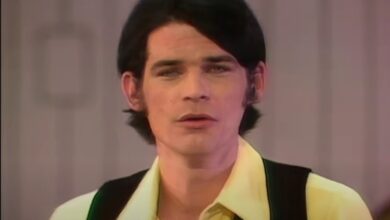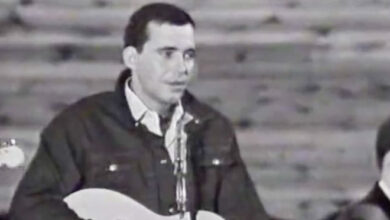Baby Love: The Supremes’ Timeless Hit That Redefined Pop Music
In the vibrant musical landscape of the 1960s, few groups achieved the monumental success of The Supremes. Comprising Diana Ross, Mary Wilson, and Florence Ballard, this Motown trio became synonymous with elegance, talent, and chart-topping hits. Among their impressive catalog, “Baby Love” stands out as a defining track that not only solidified their status as superstars but also left an indelible mark on pop music history.
The journey of The Supremes began in Detroit’s Brewster-Douglass housing projects. Originally known as The Primettes, they served as the sister group to The Primes, who would later evolve into The Temptations. Their early days were characterized by relentless rehearsals, local performances, and a steadfast determination to break into the music industry. Despite initial setbacks and being dubbed the “no-hit Supremes” due to a series of unsuccessful singles, their fortunes changed with the release of “Where Did Our Love Go” in 1964, which became their first number-one hit.
Following the success of “Where Did Our Love Go,” Motown’s prolific songwriting and production team, Holland-Dozier-Holland, sought to capitalize on the group’s newfound popularity. They crafted “Baby Love” with the intention of replicating the winning formula. The song featured Diana Ross’s distinctive lead vocals, underpinned by the harmonious backing of Wilson and Ballard. The incorporation of foot-stomping—a technique used in their previous hit—added a rhythmic drive that made the track irresistibly danceable.
Released on September 17, 1964, “Baby Love” quickly ascended the charts. By October 31, it had clinched the number-one spot on the Billboard Hot 100, where it remained for four consecutive weeks. This achievement marked The Supremes’ second consecutive chart-topper, a testament to their growing appeal. The song’s success wasn’t confined to the United States; it also reached number one on the UK Singles Chart, making The Supremes the first Motown act to achieve this feat internationally.
The recording session for “Baby Love” was a testament to the group’s professionalism and the Motown machine’s efficiency. Despite their grueling schedule, which often included multiple performances and appearances, The Supremes delivered a polished performance in the studio. The Funk Brothers, Motown’s legendary house band, provided the instrumental backing, creating a lush soundscape that complemented the trio’s vocals. The synergy between the singers and musicians was palpable, resulting in a track that was both polished and emotionally resonant.
The success of “Baby Love” had a profound impact on The Supremes’ career trajectory. It solidified their status as Motown’s premier act and opened doors to mainstream audiences that had previously been inaccessible to African American artists. Their polished image, characterized by glamorous gowns and sophisticated choreography, challenged prevailing stereotypes and set new standards for performance excellence. The Supremes became regular fixtures on popular television programs, further cementing their place in the cultural zeitgeist.
Beyond its commercial success, “Baby Love” played a significant role in breaking down racial barriers in the music industry. At a time when segregation was still prevalent in many parts of the United States, The Supremes’ widespread appeal helped bridge cultural divides. Their music resonated with diverse audiences, fostering a sense of shared experience and understanding. This crossover appeal was instrumental in paving the way for future African American artists to achieve mainstream success.
The influence of “Baby Love” extended beyond the 1960s. The song has been covered by numerous artists across various genres, a testament to its enduring appeal. Its inclusion in film soundtracks, commercials, and television shows has introduced the track to successive generations, ensuring its place in the annals of pop culture. The song’s timeless quality lies in its universal theme of love and its catchy, upbeat melody, which continues to captivate listeners decades after its initial release.
The legacy of “Baby Love” is also evident in its recognition by music historians and institutions. The song was nominated for the 1965 Grammy Award for Best Rhythm & Blues Recording, underscoring its artistic merit. In 1999, it was inducted into the Grammy Hall of Fame, further cementing its status as a classic. These accolades reflect the song’s enduring impact and its significance in the broader context of music history.
For The Supremes, “Baby Love” was more than just a hit single; it was a defining moment that encapsulated their artistic identity and commercial appeal. The song exemplified their signature sound—a blend of soulful vocals, pop sensibilities, and polished production—that resonated with a wide audience. This formula not only brought them success but also influenced countless artists who followed in their footsteps.
The success of “Baby Love” also highlighted the effectiveness of Motown’s approach to artist development and production. The label’s emphasis on quality control, rigorous rehearsal schedules, and a cohesive artistic vision ensured that its releases were consistently of high quality. This meticulous attention to detail was evident in “Baby Love,” from its catchy melody to its polished arrangement, contributing to its widespread appeal.
In the broader context of the 1960s, “Baby Love” and The Supremes represented a shift in the music industry’s dynamics. The emergence of African American female groups achieving mainstream success challenged existing norms and opened the door for greater diversity in popular music. The Supremes’ success demonstrated that talent and appeal transcended racial and gender barriers, paving the way for future generations of artists.
Reflecting on the cultural impact of “Baby Love,” it’s clear that the song’s appeal was multifaceted. Its catchy melody and relatable lyrics made it a favorite among listeners, while its polished production and performance showcased the artistic excellence of The Supremes. The song’s success also underscored the effectiveness of Motown’s innovative approach to music production and artist development.



